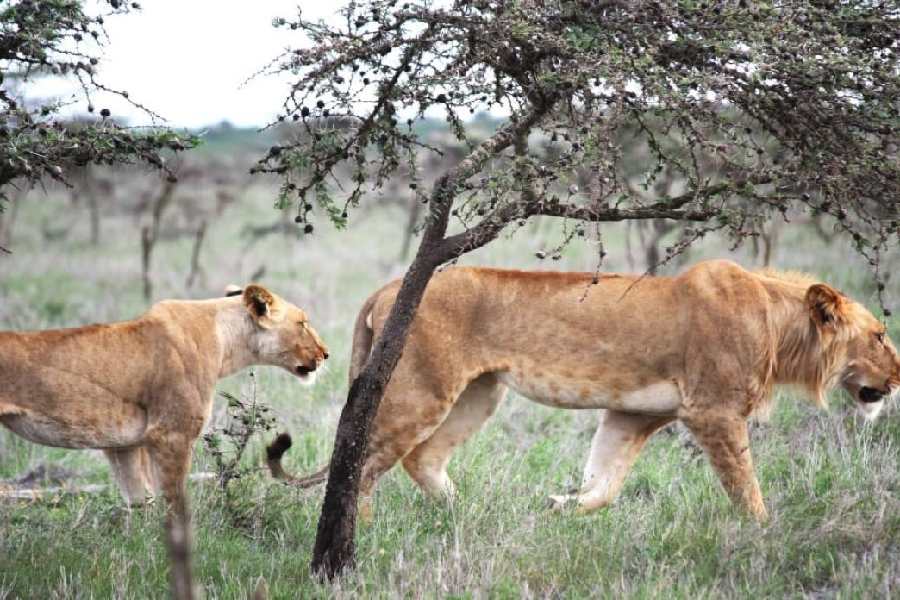An invasive ant species has altered tree-covered landscapes in Kenya, setting off an ecological chain reaction that has disrupted lions’ hunting behaviour, causing them to switch their primary prey from zebras to buffaloes.
A study by an international team of wildlife scientists spanning over two decades of observations has revealed a previously unknown and complex web of ecosystem interactions that connect ants, acacia trees, elephants, lions, zebras, and buffaloes.
The study has found that a big-headed ant species that invaded Kenya’s Laikipia region about two decades ago has led to a decrease in acacia tree cover, increasing the landscape’s openness and reducing the occurrence of zebra kills by lions.
The big-headed ants — likely arrivals from an Indian Ocean island — have triggered a cascade of effects by attacking a native ant species that nests within the bulbous thorns of acacia trees. The native ants protected the trees from herbivores such as elephants. But the big-headed ants have steadily exterminated the native ants, killing adults and consuming their eggs, larvae, and pupae, effectively eliminating the protection the trees enjoyed against elephants.
“These tiny invasive ants showed up maybe 15 years ago and none of us noticed because they aren’t aggressive towards large creatures, including people,” said Todd Palmer, an ecologist and professor at the University of Florida, a study team member. “We now see they’re transforming landscapes in very subtle ways but with devastating effects,” Palmer said in a media release.
When the big-headed ants pushed out native ants, the trees became vulnerable to overgrazing. Palmer and his colleagues observed that elephants browsed and broke acacia trees at rates five to seven times higher in areas invaded by the big-headed ants than in those with native ants.
The outcome of this overgrazing was a much more open landscape where lions found it harder to stalk zebras, their preferred prey. The scientists have calculated that zebra kills by lions were 2.8 times higher in uninvaded areas compared to areas invaded by the big-headed ants.
The relatively open landscape in the invaded areas allows zebras greater opportunities to escape approaching lions. Under these changes, the lions have shifted their prey to buffaloes that are less agile than zebras. But buffaloes are larger than lions and cluster in groups, making them much more formidable prey than zebras.
The proportion of zebra kills by lions in the region dropped from 67 per cent in 2003 to 42 per cent in 2020, while the proportion of buffalo kills by lions rose over the same period from 0 per cent to 42 per cent. The scientists believe this prey switch has helped the lions maintain their numbers in the areas invaded by the ants despite the difficulty in hunting zebras.
“But we don’t yet know what could result from this switch in the lions’ hunting strategy,” Palmer said. The big-headed ants continue to expand at the rate of about 50 metres per year.
The study team included Jacob Goheen at the University of Wyoming, Corrina Riginos at The Nature Conservancy, and others in collaborating institutions in Kenya, Canada, the UK, and the US.
“This is a well-designed, novel experiment that has provided new insights into interactions within an ecosystem,” said Ravi Chellam, a wildlife biologist in India and specialist in lions who was not associated with the study in Africa.










